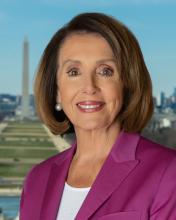Delay Medicaid DSH Cut, Pelosi Says
Medicaid DSH cuts should be delayed, House Speaker Nancy Pelosi (D-CA) told a gathering of hospital officials.
 According to Speaker Pelosi,
According to Speaker Pelosi,
DSH cuts threaten to erode the health of community hospitals, safety-net hospitals and rural hospitals, [affecting] the health of not only the families that rely on Medicaid, but any person who relies on these hospitals for care.
SNAP members all receive Medicaid DSH payments and would be harmed if the scheduled cut takes effect on October 1.
Learn more about Speaker Pelosi’s remarks in the Becker’s Hospital Review article “House speaker urges Congress to ease Medicaid payment cuts to hospitals serving low-income patients.”
 Last week the Medicaid and CHIP Payment and Access Commission released its annual report to Congress, with most of the report focusing on its analysis and recommendations for policy updates involving Medicaid disproportionate share hospital payments (Medicaid DSH) and Medicaid upper payment limit payments (UPL payments).
Last week the Medicaid and CHIP Payment and Access Commission released its annual report to Congress, with most of the report focusing on its analysis and recommendations for policy updates involving Medicaid disproportionate share hospital payments (Medicaid DSH) and Medicaid upper payment limit payments (UPL payments). MACPAC commissioners discussed several statutory changes that would seek to minimize the impact of the court ruling:
MACPAC commissioners discussed several statutory changes that would seek to minimize the impact of the court ruling: The following is MACPAC’s own summary of the sessions.
The following is MACPAC’s own summary of the sessions.